Joseph Wemakor: Spotlight on Ghana’s human rights situation on Human Rights Day 2023
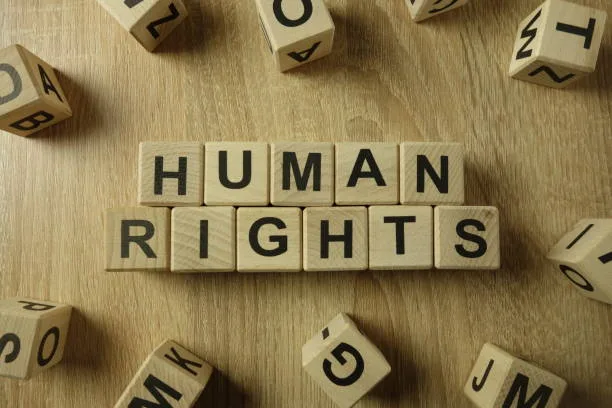
Human rights text from wooden blocks on desk
Do fundamental human rights exist in Ghana?
This article reviews the human rights status in the Republic of Ghana, giving details on the nation’s commitment to upholding these fundamental princhuiples as well as some existing violations that persist in the country.
Human rights are fundamental rights that all persons have, regardless of their citizenship, location of residence, sex, ethnicity, race, color, religion, language, or any other status.
Commonly referred to as inalienable fundamental rights, a person is intrinsically entitled to them merely by virtue of being a human being.
Human rights are as old as human civilization; however, their application and importance have been clearly defined in recent years.
It gained increased significance, especially following the adoption of the United Nations Universal Declaration of Human Rights (UDHR) on December 10, 1948, after the Second World War.
Ghana, a West African nation with a rich cultural heritage and a history of political stability, has made significant strides in promoting and protecting human rights.
The independence movement led by Dr. Kwame Nkrumah, who became Ghana’s first Prime Minister and later first president, marked a significant milestone in the decolonization of Africa and inspired other nations on the continent to seek self-determination and freedom from colonial powers.
Ghana’s commitment to human rights is evident in its legal framework, with the 1992 Constitution serving as the supreme law.
The constitution guarantees a range of fundamental human rights, including the right to life, dignity, and equality before the law. Additionally, Ghana is a party to various international conventions, such as the International Covenant on Civil and Political Rights (ICCPR) and the Convention on the Elimination of All Forms of Discrimination Against Women (CEDAW), demonstrating its dedication to global human rights standards.
As the world comes together to celebrate World Human Rights Day 2023, it is imperative to shine a spotlight on the human rights challenges faced by the nation of Ghana.
While Ghana has made significant strides in various domains, a critical examination reveals persistent human rights issues that demand our collective attention and action.
Over the years, Ghana has made some significant achievements regarding issues of human rights. Some of which include:
Political Stability and Democratic Governance: Ghana has a commendable record of democratic governance, with peaceful transitions of power through transparent elections.
This political stability contributes to the protection of civil and political rights, fostering an environment where citizens can freely express their views and participate in the decision-making process.
Also, access to Education and Healthcare: The government has made progress in ensuring access to education and healthcare, essential components of economic, social, and cultural rights.
Efforts to improve literacy rates and provide healthcare services contribute to the overall well-being of Ghanaians, aligning with international human rights principles.
Moreover, Ghana has taken steps to address gender inequality with legislative measures and policies aimed at promoting women’s rights.
While challenges persist, such as gender-based violence and traditional norms, the government’s commitment to initiatives like the Affirmative Action Bill demonstrates a proactive approach to advancing gender equality.
However, there have been some setbacks in the fight for human rights, despite the achievements made in promoting human rights in the country.
Freedom of expression, a fundamental human right and a cornerstone of any democracy, is facing threats in Ghana.
Journalists and activists have encountered censorship, harassment, and restrictions, hindering their ability to express dissent and investigate matters of public interest.
On this year’s Human Rights Day, which is being celebrated with the theme: “Freedom, Equality, and Justice for All,” it is crucial to recognize the importance of a free press and advocate for an environment where individuals can freely express their opinions without fear of reprisal.
Secondly, instances of police brutality and the excessive use of force have raised concerns about citizens’ safety and their rights to live free from arbitrary violence.
World Human Rights Day serves as a poignant reminder to address systemic issues within law enforcement agencies, promoting accountability, transparency, and the protection of citizens’ rights.
Comprehensive police reform is essential to ensuring that law enforcement agencies serve and protect the communities they are entrusted to serve.
Moreover, discrimination based on gender, ethnicity, and other factors persists in Ghana, impeding the realization of a truly inclusive society.
As we celebrate this year’s Human Rights Day, let us commit to dismantling discriminatory practices and promoting equal opportunities for all.
Empowering marginalized communities and fostering diversity will contribute to a more just and harmonious nation.
Also, child labour remains a pervasive issue in sectors such as agriculture and mining, depriving children of their right to education and a proper childhood.
Human Rights Day is an opportune moment to renew our commitment to eradicating child labour through comprehensive policies and robust enforcement.
Protecting the rights of children ensures a brighter and more equitable future for Ghana. Furthermore, limited access to quality education, especially in rural areas, perpetuates cycles of poverty and inequality.
As we mark Human Rights Day 2023, let us prioritize initiatives that ensure every child has the opportunity to receive a quality education.
Education is not only a fundamental right but also a powerful tool for breaking the chains of poverty and building a more just society.
Again, while Ghana has made progress in healthcare, disparities persist, particularly in rural areas. Human Rights Day 2023 calls for a renewed commitment to ensuring universal access to quality healthcare.
By addressing healthcare inequalities, we can safeguard the right to health for all citizens and promote a healthier, more resilient nation.
Additionally, issues related to land rights, often linked to large-scale development projects, have led to the forced displacement of communities.
On this year’s Human Rights Day, let us advocate for policies that protect the rights of individuals and communities to their land. Striking a balance between development and human rights is essential for fostering sustainable growth that benefits all citizens.
Finally, bribery and corruption undermine the rule of law and hamper the effective enjoyment of human rights.
As we mark this year’s International Human Rights Day, efforts to strengthen institutions and promote transparency are essential to addressing issues of bribery and corruption.
Although governments are responsible for maintaining peace, security, and human protection, civil society organizations (CSOs) have also contributed to the immense fight for human rights in Ghana as a way of supporting governments in maintaining peace and security.
Civil Society Organizations (CSOs) are groups or associations that operate independently of government or for-profit businesses.
In the fight for human rights, CSOs provide crucial research to assist governments in comprehending and addressing issues and requirements locally.
Among other human rights advocacy groups vigorously championing issues of human rights in Ghana, the Human Rights Reporters Ghana-NGO (HRRG), a dynamic rights organization globally recognized for its immense advocacy for human rights in Ghana and beyond, stood high in its pursuit in the fight for human rights.
World Human Rights Day serves as a powerful reminder that the pursuit of human rights is a collective responsibility.
This year’s Human Rights Day provides a momentous occasion for people worldwide to reflect on the state of human rights.
Ghana, known for its history as the first African country to gain independence in 1957, prides itself on its efforts to champion human rights. However, serious reflection is warranted on the progress and ongoing challenges the nation faces in this critical arena.
Ghana has ratified numerous international human rights treaties, including the International Covenant on Civil and Political Rights (ICCPR) and the International Covenant on Economic, Social, and Cultural Rights (ICESCR).
The country’s 1992 constitution also incorporates comprehensive bills of rights that cover everything from the right to life and freedom of expression to social and cultural rights.
Despite structural efforts, challenges persist.
The U.S. Department of State’s 2022 Human Rights Reports highlighted concerns about unlawful or arbitrary killings by the government or its agents, harsh and life-threatening prison conditions, and significant problems with the independence of the judiciary.
There are also reports of societal violence, especially toward women, and discrimination based on sexual orientation and gender identity.
Freedom of expression, a cornerstone of democratic societies, has come under threat.
Journalists in Ghana face various forms of intimidation and violence, and in 2023, concerns have skyrocketed regarding the safety of investigative journalists.
The notable impunity surrounding crimes against journalists continues to restrict press freedom and suggests a need for enhanced enforcement of protections.
On the economic front, Ghana’s informal sector, which accommodates a majority of the workforce, faces ongoing challenges, with limited access to social protections and labour rights.
Child trafficking and labour also remain pressing issues, particularly in the agricultural and mining sectors and in fishing communities.
On a brighter note, Ghana has taken strides in some areas.
The country’s collaborative efforts with international partners have led to initiatives to reduce child labour and promote the rights of the disabled.
Increased public discourse on LGBTQ+ rights, despite the societal stigma, marks a shift towards recognition of the need for inclusivity and equality, although this debate remains highly contentious.
Women’s rights have seen improvements, with initiatives aimed at increasing female leadership and political participation.
The Representation of the People’s Amendment Law (ROPAL), aiming to empower more women in politics, and the passage of the Affirmative Action Bill into law are steps in the right direction.
The Affirmative Action Bill is a proposed piece of legislation that seeks to provide gender parity in Ghanaian politics. The bill aims to increase women’s participation in decision-making positions by proposing that at least 40% of public offices be reserved for women.
On International Human Rights Day, Ghana finds itself at a crossroads.
The commitment to human rights ideals is evident, but the road to realizing these rights for all citizens is fraught with obstacles.
Continued vigilance, advocacy, and reform by government bodies, civil society, and the international community remain crucial in addressing human rights deficits and ensuring that Ghana’s constitutional promises translate into tangible results for every Ghanaian.
As we pause to reflect on this day, it is imperative that these issues not only be acknowledged but actively addressed.
Moving forward, Ghana must strengthen its institutional frameworks, enforce existing laws, and, importantly, ensure the protection of human rights defenders.
International Human Rights Day serves not only as a day of reflection but also as a call to action—a reminder of the collective responsibility to uphold and champion the dignity and rights inherent to all.
As we mark this year’s World Human Rights Day, HRRG wishes to call on the government and all stakeholders to collaborate and eradicate human rights violations persisting in the country.
With its zeal for promoting the fundamental rights of the people of Ghana and beyond, HRRG is ready and willing to collaborate among stakeholders and governments towards the fight for human rights.
In conclusion, through collaborative efforts, Ghana can serve as an inspiring example of a society that cherishes the dignity and rights of its people.
As we celebrate this year’s Human Rights Day, let us stand together for a more just and brighter future for all.
Source:Joseph Kobla Wemakor
The writer is a staunch human rights activist, National SDGs Champion, and Founder/Executive Director of Human Rights Reporters Ghana (HRRG).
Send Stories | Social Media | Disclaimer
Send Stories and Articles for publication to [email protected]
We Are Active On Social Media
WhatsApp Channel: JOIN HERE
2024 BECE and WASSCE Channel - JOIN HERE
Facebook: JOIN HERE
Telegram: JOIN HERE
Twitter: FOLLOW US HERE
Instagram: FOLLOW US HERE
Disclaimer:
The information contained in this post on Ghana Education News is for general information purposes only. While we endeavour to keep the information up to date and correct, we make no representations or warranties of any kind, express or implied, about the completeness, accuracy, reliability, suitability or availability with respect to the website or the information, products, services, or related graphics contained on the post for any purpose.



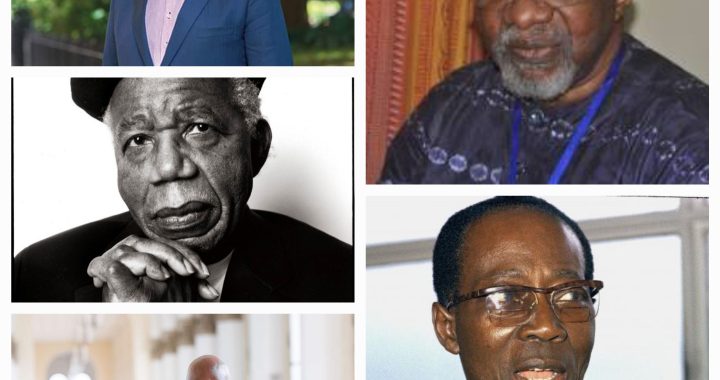 Top five African philosophers
Top five African philosophers 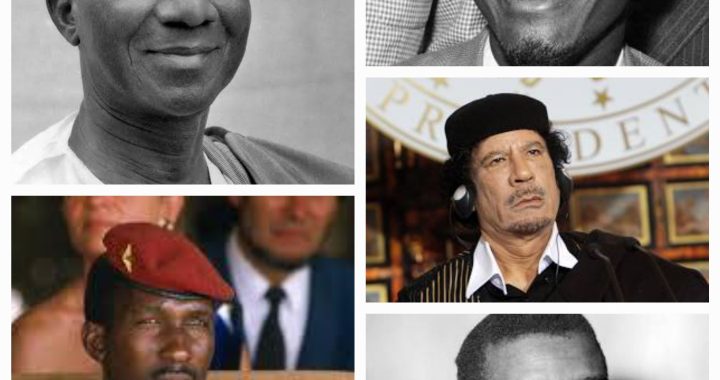 Five 5 African leaders who were assassinated
Five 5 African leaders who were assassinated  Why Nkrumah’s Face appeared on Guinea’s currency
Why Nkrumah’s Face appeared on Guinea’s currency 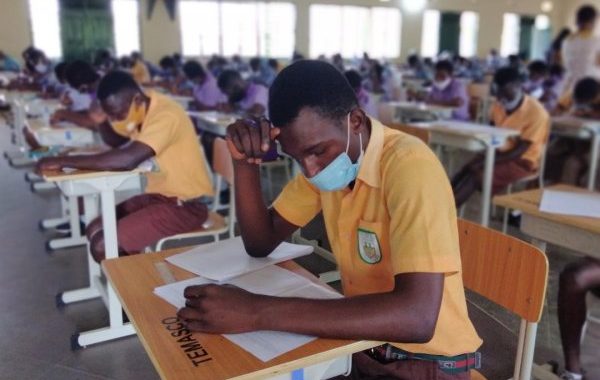 How to Create Good Study Habits for Exams
How to Create Good Study Habits for Exams 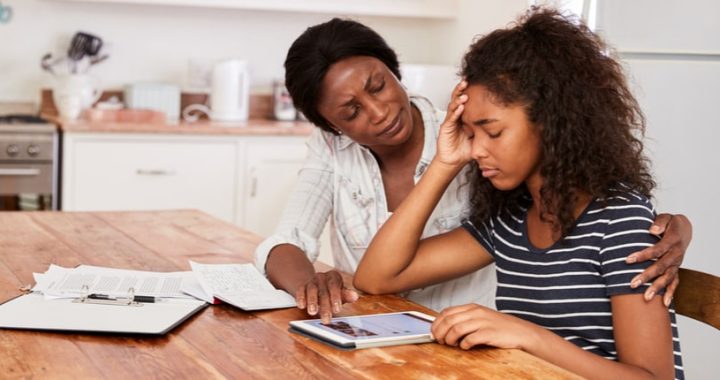 How to Help Your Child Prepare for Exams
How to Help Your Child Prepare for Exams 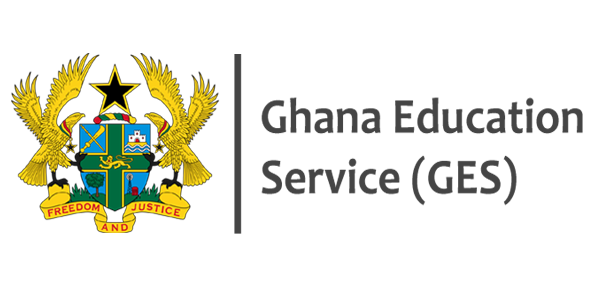 GES To Query 42 Teachers In The Upper West Region; Here’s Why
GES To Query 42 Teachers In The Upper West Region; Here’s Why 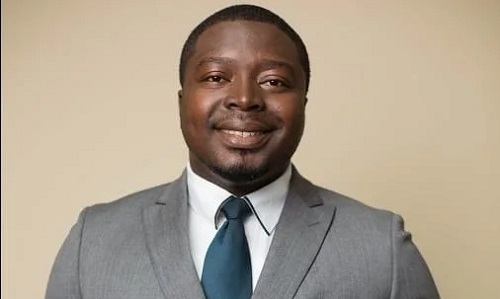 Profile Of Kwabena Boateng, Ejisu MP Elect
Profile Of Kwabena Boateng, Ejisu MP Elect